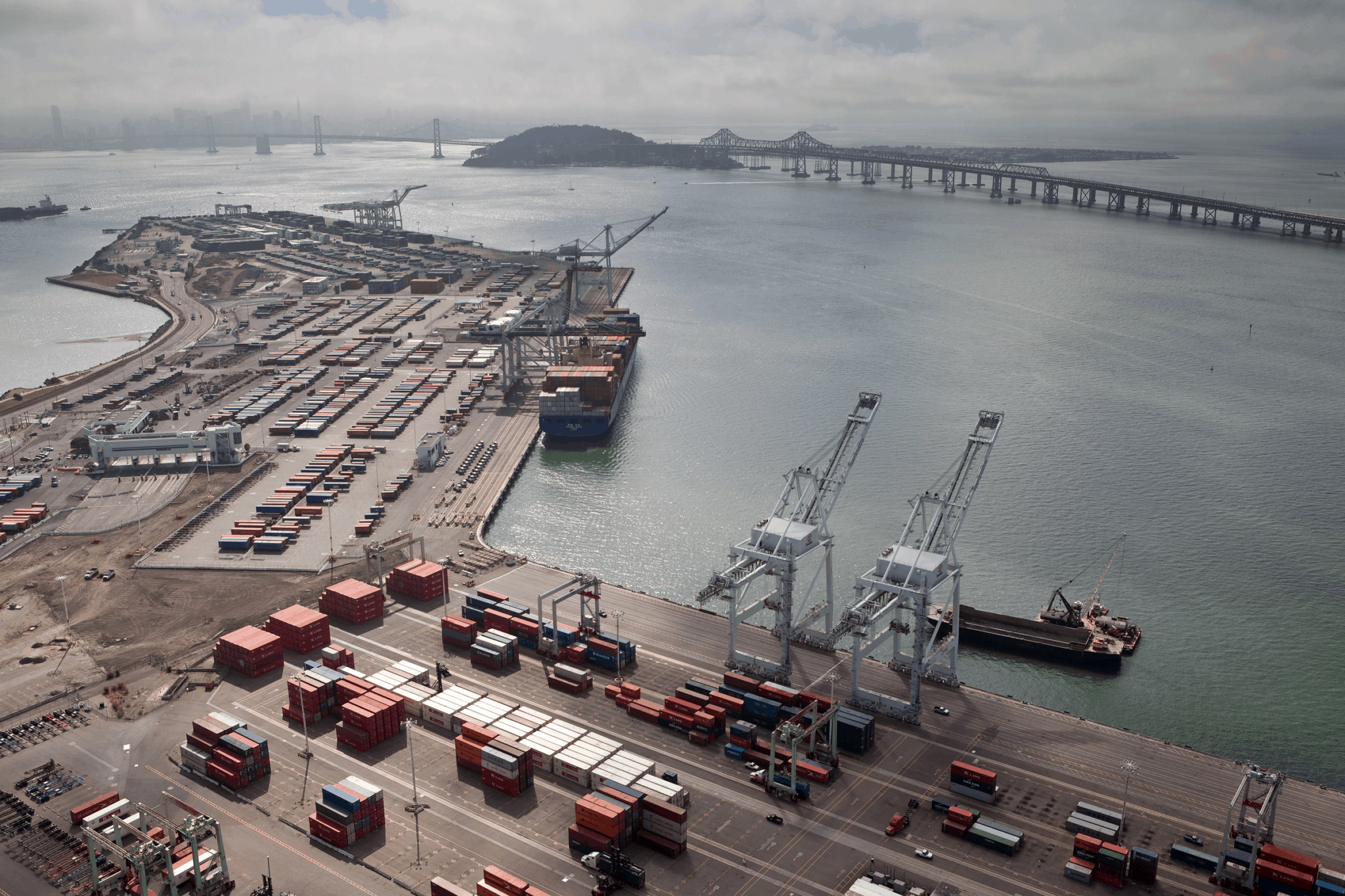
Zachary Boullt is a student at Harvard Law School.
As part of the Juneteenth labor actions discussed Friday by Rund, almost 40,000 dockworkers that are members of the International Longshore and Warehouse Union commenced a work stoppage at all 29 of the U.S.’s west coast ports. It was the largest work stoppage the union has done in over a decade, and the first labor stoppage by an international union on Juneteenth. Demonstrations and protests were held in all three west coast states, the most notable of which occurred at the Port of Oakland. Speakers such as Angela Davis, Donald Glover, former Black Panther Clarence Thomas, Boots Riley, and Bobby Grant, the uncle of Oscar Grant, who was killed by a police officer at the infamous 2009 Fruitvale Station shooting, protested. The demonstration focused on the murder of George Floyd, the privatization of the Port of Oakland, police brutality, and solidarity between movements for labor and racial justice. One estimate based on a 2014 study of port work stoppages finds that over a billion dollars worth of trade was suspended.
The MLK Labor Council, Seattle’s largest labor council, has expelled the Seattle Police Officer’s Guild from its membership. 55 percent of the delegates voted in favor of expelling the police union. The MLK Labor Council cited the police union’s failure to actively work to dismantle racism in their institution and in society. The Labor Council had threatened two weeks prior to expel SPOG if it did not agree to address the problem of racism in law enforcement in its next contract negotiations.
As states continue the reopening process, OSHA has issued a new guidance advising non-essential businesses on how to reopen. The guidance does not create legal obligations on employers. It includes recommendations for hygiene, social distancing, and isolation of sick employees, among others. It also includes the recommendation that non-essential businesses should reopen as stay-at-home orders are lifted. The guidance divides the reopening process into 3 phases, similar to many other state reopening plans.
As Congress debates another potential coronavirus stimulus package, business leaders and congressional Republicans are calling for liability protections from lawsuits from workers and customers that contract the virus. Mitch McConnell has stated his intent to include liability shields in any future stimulus packages, referring to potential coronavirus liability litigation as a “litigation epidemic” and a “red line.” The American Association for Justice, however, has responded that there has been no “second pandemic” of coronavirus-related litigation. Democrats have expressed intent to limit these shields, while labor groups have said these protections will function to shield businesses who have not taken proper steps to protect their employees and customers. Four states have already passed liability shield laws for certain health care facilities, while Louisiana has passed a law barring diners from suing restaurants based on claims that the restaurant gave them the virus.






Daily News & Commentary
Start your day with our roundup of the latest labor developments. See all
February 4
Lawsuit challenges Trump Gold Card; insurance coverage of fertility services; moratorium on layoffs for federal workers extended
February 3
In today’s news and commentary, Bloomberg reports on a drop in unionization, Starbucks challenges an NLRB ruling, and a federal judge blocks DHS termination of protections for Haitian migrants. Volatile economic conditions and a shifting political climate drove new union membership sharply lower in 2025, according to a Bloomberg Law report analyzing trends in labor […]
February 2
Amazon announces layoffs; Trump picks BLS commissioner; DOL authorizes supplemental H-2B visas.
February 1
The moratorium blocking the Trump Administration from implementing Reductions in Force (RIFs) against federal workers expires, and workers throughout the country protest to defund ICE.
January 30
Multiple unions endorse a national general strike, and tech companies spend millions on ad campaigns for data centers.
January 29
Texas pauses H-1B hiring; NLRB General Counsel announces new procedures and priorities; Fourth Circuit rejects a teacher's challenge to pronoun policies.